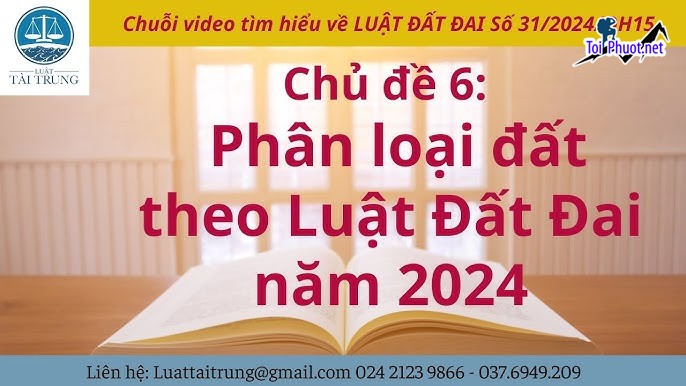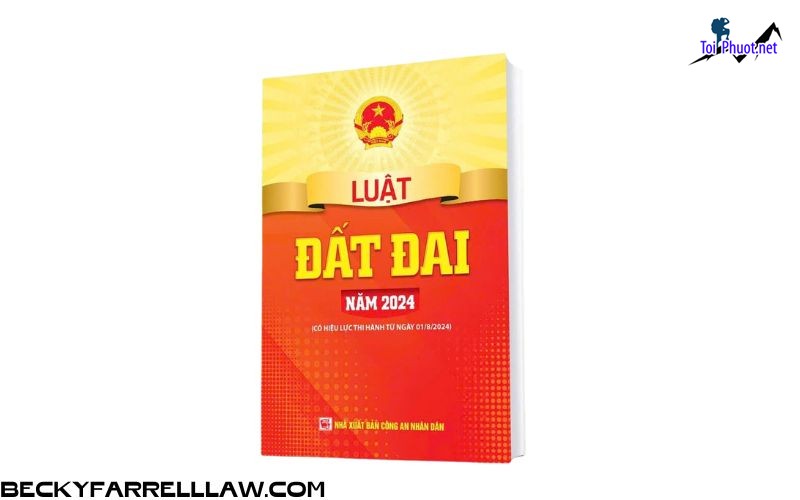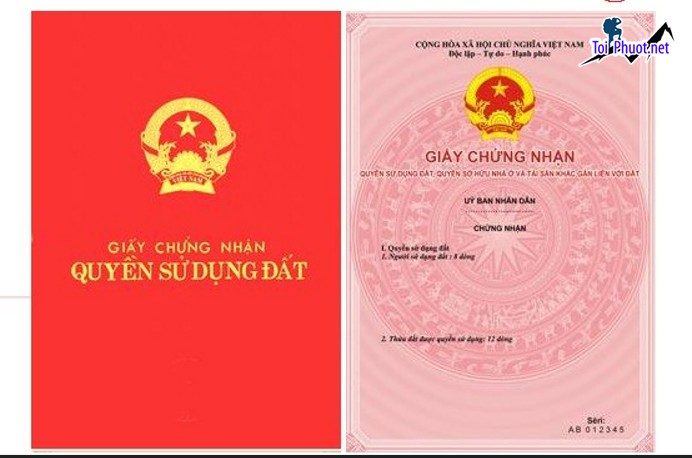
The 2024 Land Law, passed by the 15th National Assembly on January 18, 2024, marks a significant milestone in reshaping land use rights and strengthening the protection of land users' legal interests. However, the new law also requires strict management and oversight by government authorities to prevent abuse or violations of land-related regulations.
One notable update in the law is the expansion of land use rights for overseas Vietnamese, which is seen as a major step forward. According to Assoc. Prof. Dr. Doan Hong Nhung, Senior Lecturer at the University of Law under Vietnam National University, this provision is expected to encourage investment in Vietnam. Nevertheless, she emphasizes the importance of effective state control to ensure lawful and efficient land use.
Land Law 2024 expands land use rights in the US
The 2024 Land Law consists of 16 chapters and 260 articles, and it comes into effect on January 1, 2025, with some provisions having specific enforcement dates. It reflects the key policies and resolutions of the Communist Party of Vietnam, particularly those outlined in the 13th National Congress and Resolution No. 18-NQ/TW dated June 16, 2022, aimed at institutional reform, improving land management, and enhancing the country’s development trajectory toward becoming a high-income nation.
A major shift in the 2024 Land Law lies in its expanded definition of land users.
Under Clause 6, Article 5 of the 2013 Land Law, land users included:
“Overseas Vietnamese in accordance with the law on nationality.”
The 2024 version, however, broadens this scope. Clauses 3 and 6, Article 4 now define land users as:
“3. Domestic individuals and overseas Vietnamese who are Vietnamese citizens (hereinafter referred to as individuals);
6. Persons of Vietnamese origin residing abroad.”
This broader definition recognizes both Vietnamese citizens living abroad and people of Vietnamese origin, aligning with Clauses 3 and 4, Article 3 of the 2008 Law on Nationality. This creates a consistent legal framework for granting rights and obligations to this group.
✅ Implication: The redefinition enhances legal clarity and ensures better access to land use rights for overseas Vietnamese, facilitating their participation in real estate transactions, land use, and property management in Vietnam.
The law clearly provides that overseas Vietnamese who are Vietnamese citizens are entitled to the same land use rights and obligations as domestic individuals. This includes:
Joint ownership
Land use rights transfer
Lease, inheritance, and donation of land
Participation in real estate development projects
These changes address past legal ambiguities where overseas Vietnamese had to rely on family members in Vietnam to hold property on their behalf, often leading to disputes or legal complications.
Land Law 2024 expands land use rights in the US
Previously, under Article 186 of the 2013 Land Law, overseas Vietnamese were limited in their ability to own residential land. Foreigners or overseas Vietnamese not eligible to buy houses were also barred from owning land use rights.
The 2024 Land Law, however, grants broader ownership rights:
Vietnamese citizens living abroad are now allowed to own homes attached to land use rights.
People of Vietnamese origin residing overseas are allowed to purchase homes in Vietnam under specific conditions.
Under Point h, Clause 1, Article 28, the law further allows them to:
“Buy, lease, or receive residential land through housing development projects; inherit land use rights and associated land types with residential structures; or receive donations from lawful heirs as per civil law.”
✅ These regulations promote the return of overseas Vietnamese to live, work, and invest in Vietnam, creating both economic and emotional ties with their homeland.
Article 41 of the 2024 Land Law defines the rights and obligations of people of Vietnamese origin residing abroad and foreign-invested economic organizations in using land for investment purposes:
These individuals or organizations may lease land with annual payment or lump-sum options.
They are allowed to mortgage property attached to land at licensed financial institutions.
They may contribute capital using land-attached assets in business ventures.
Clause 3, Article 41 provides further legal protections and rights for foreign-invested entities when the state allocates land for projects.
Additionally, Article 43 gives people of Vietnamese origin the right to use land in industrial parks, clusters, and high-tech zones, enabling greater participation in Vietnam’s industrial and technological development.
✅ These expansions signify Vietnam's broader strategic intent to leverage overseas Vietnamese resources for national development while ensuring proper legal and regulatory oversight.

In tandem with the Land Law, the 2023 Law on Real Estate Business also introduces new provisions granting overseas Vietnamese equal rights in the real estate sector.
According to Article 10 of the 2023 Law:
Overseas Vietnamese are recognized similarly to domestic individuals and are entitled to engage in various real estate business activities.
Eligible forms include:
Building housing or construction projects for sale, lease, or lease-purchase
Developing infrastructure in real estate projects for lease or transfer
Buying or leasing parts of constructed buildings for business use
These rights are also extended to people of Vietnamese origin residing abroad, provided they comply with land use regulations and intended purposes.
✅ These provisions unlock opportunities for overseas Vietnamese to engage in property investment, development, and leasing activities, helping mobilize remittance flows and foreign capital.
Assoc. Prof. Dr. Doan Hong Nhung highlights that the 2024 Land Law represents a significant policy shift—not just in legal terms but in its strategic objective to foster global partnerships and bring overseas Vietnamese closer to their roots through formal legal channels.
Land Law 2024 expands land use rights in the US
She also emphasizes that:
A complete legal framework is now in place to support overseas Vietnamese in engaging with Vietnam’s land and property markets.
However, challenges may arise, particularly in monitoring and managing land use by those who do not reside in Vietnam.
⚠️ Risks such as misuse of land rights, illegal transfers, or regulatory non-compliance may increase if adequate controls are not implemented.
The 2024 Land Law significantly expands the rights of overseas Vietnamese and persons of Vietnamese origin, enabling them to own, use, and invest in land and real estate in Vietnam. This aligns Vietnam’s legal system with global best practices, reflecting the country’s openness to foreign capital, remittances, and expertise.
However, the law’s success will ultimately depend on:
The effective enforcement of land regulations
A robust system of monitoring and dispute resolution
The cooperation of overseas Vietnamese in complying with national laws
✅ If implemented properly, these reforms can be a powerful driver for national growth, helping reconnect overseas Vietnamese with their homeland while ensuring sustainable land management.
Nguồn tin: tapchitoaan .vn
Những tin mới hơn
Những tin cũ hơn
 Cho Thuê Lều Du Lịch Giá Rẻ Ở Tại Phú Yên
Cho Thuê Lều Du Lịch Giá Rẻ Ở Tại Phú Yên
![[Flycam] Núi Đá Bia, điểm du lịch sinh thái ở Phú Yên](/assets/news/2016_10/nui-da-bia-diem-du-lich-sinh-thai-o-phu-yen13.jpg) [Flycam] Núi Đá Bia, điểm du lịch sinh thái ở Phú Yên
[Flycam] Núi Đá Bia, điểm du lịch sinh thái ở Phú Yên
 Ngẩn Ngơ Vẻ Đẹp Tinh Khôi Của Hot Girl Tú Linh Khi Diện Áo Cưới
Ngẩn Ngơ Vẻ Đẹp Tinh Khôi Của Hot Girl Tú Linh Khi Diện Áo Cưới
 Cho thuê loa kẹo kéo vali du lịch giá rẻ tại Tuy Hòa - Phú Yên
Cho thuê loa kẹo kéo vali du lịch giá rẻ tại Tuy Hòa - Phú Yên
 Spa ở tại Tuy Hòa Phú Yên bạn nên chọn để làm đẹp và chăm sóc da
Spa ở tại Tuy Hòa Phú Yên bạn nên chọn để làm đẹp và chăm sóc da
 Địa Điểm Chụp Ảnh Cưới Đẹp Ở Phú Yên
Địa Điểm Chụp Ảnh Cưới Đẹp Ở Phú Yên
 Thuê Xe Máy Tuy Hòa - Thuê Xe Máy Phú Yên Giá Rẻ
Thuê Xe Máy Tuy Hòa - Thuê Xe Máy Phú Yên Giá Rẻ
 Cây hoa đào, mai, liễu đèn led, thanh lý giá rẻ toàn quốc
Cây hoa đào, mai, liễu đèn led, thanh lý giá rẻ toàn quốc
 Áo cưới Phú Yên Sang Trọng Quyến Rũ
Áo cưới Phú Yên Sang Trọng Quyến Rũ
 Suối nước khoáng Phú Sen, điểm du lịch nghĩ dưỡng ở Phú Yên
Suối nước khoáng Phú Sen, điểm du lịch nghĩ dưỡng ở Phú Yên
 5 quán Nem Nướng Nha Trang Nhà Bè ăn là ghiền Sài Gòn Hồ Chí Minh
5 quán Nem Nướng Nha Trang Nhà Bè ăn là ghiền Sài Gòn Hồ Chí Minh
 5 quán Nem Nướng Nha Trang Cần Giờ ăn là ghiền Sài Gòn Hồ Chí Minh
5 quán Nem Nướng Nha Trang Cần Giờ ăn là ghiền Sài Gòn Hồ Chí Minh
 5 quán Nem Nướng Nha Trang Củ Chi ăn là ghiền Sài Gòn Hồ Chí Minh
5 quán Nem Nướng Nha Trang Củ Chi ăn là ghiền Sài Gòn Hồ Chí Minh
 5 quán Nem Nướng Nha Trang Hóc Môn ăn là ghiền Sài Gòn Hồ Chí Minh
5 quán Nem Nướng Nha Trang Hóc Môn ăn là ghiền Sài Gòn Hồ Chí Minh
 5 quán Nem Nướng Nha Trang Bình Chánh ăn là ghiền Sài Gòn Hồ Chí Minh
5 quán Nem Nướng Nha Trang Bình Chánh ăn là ghiền Sài Gòn Hồ Chí Minh